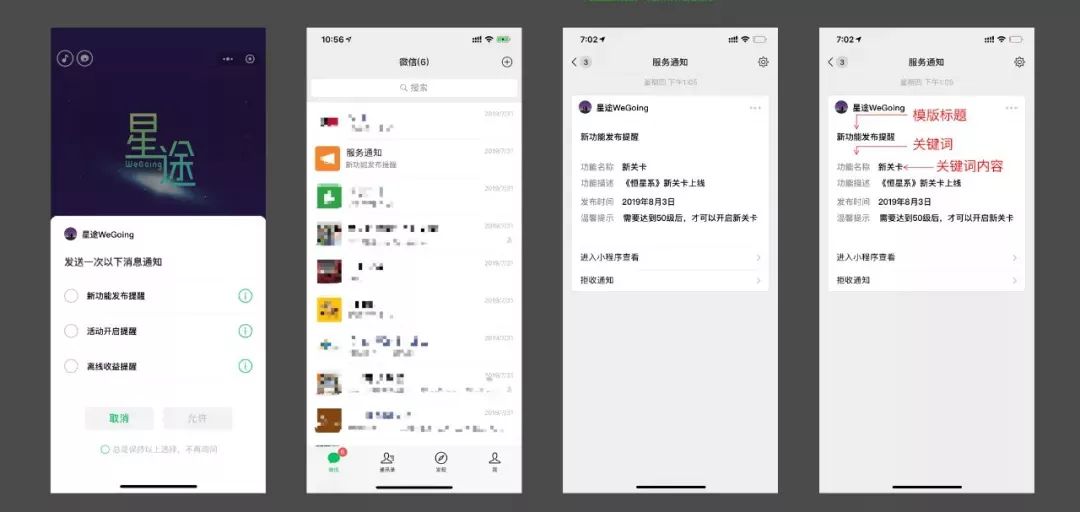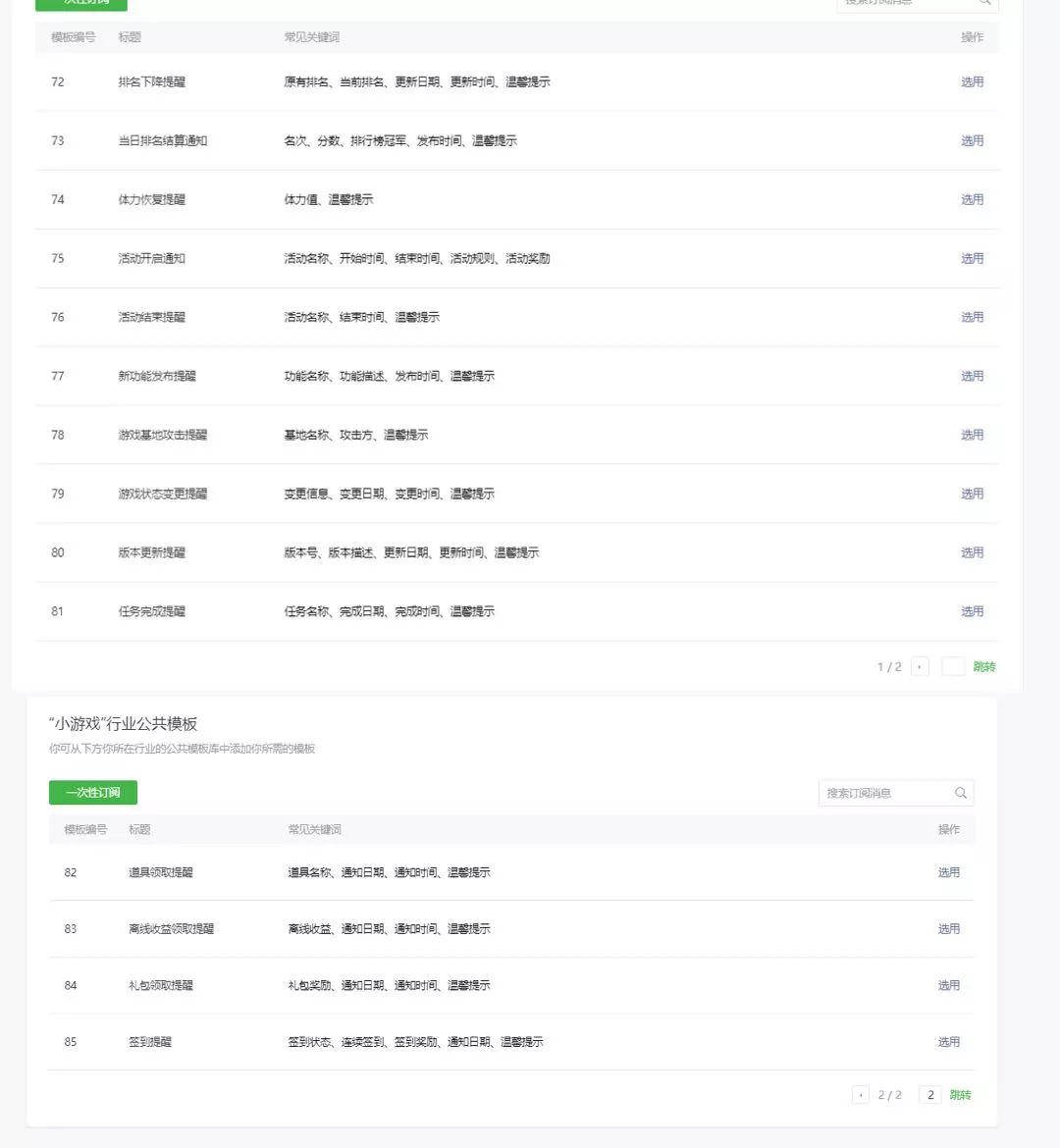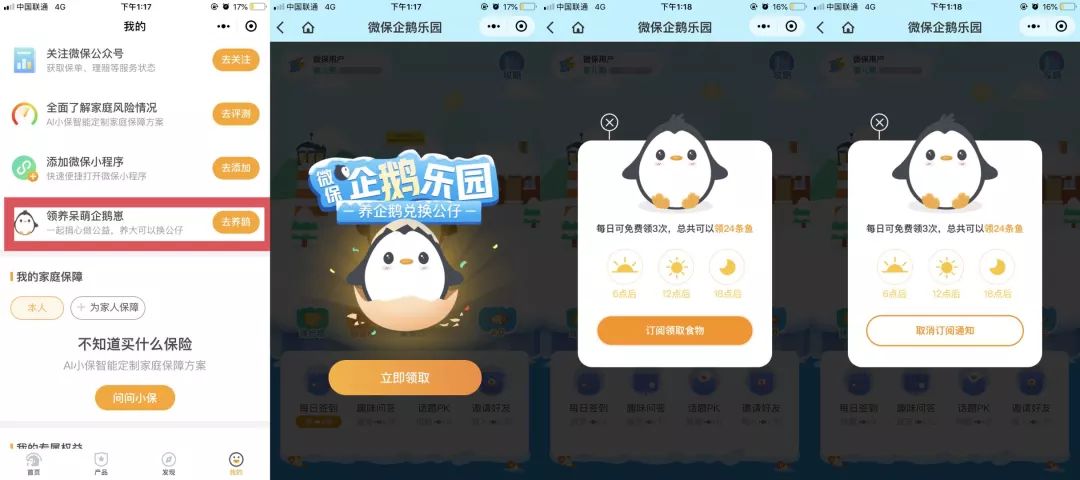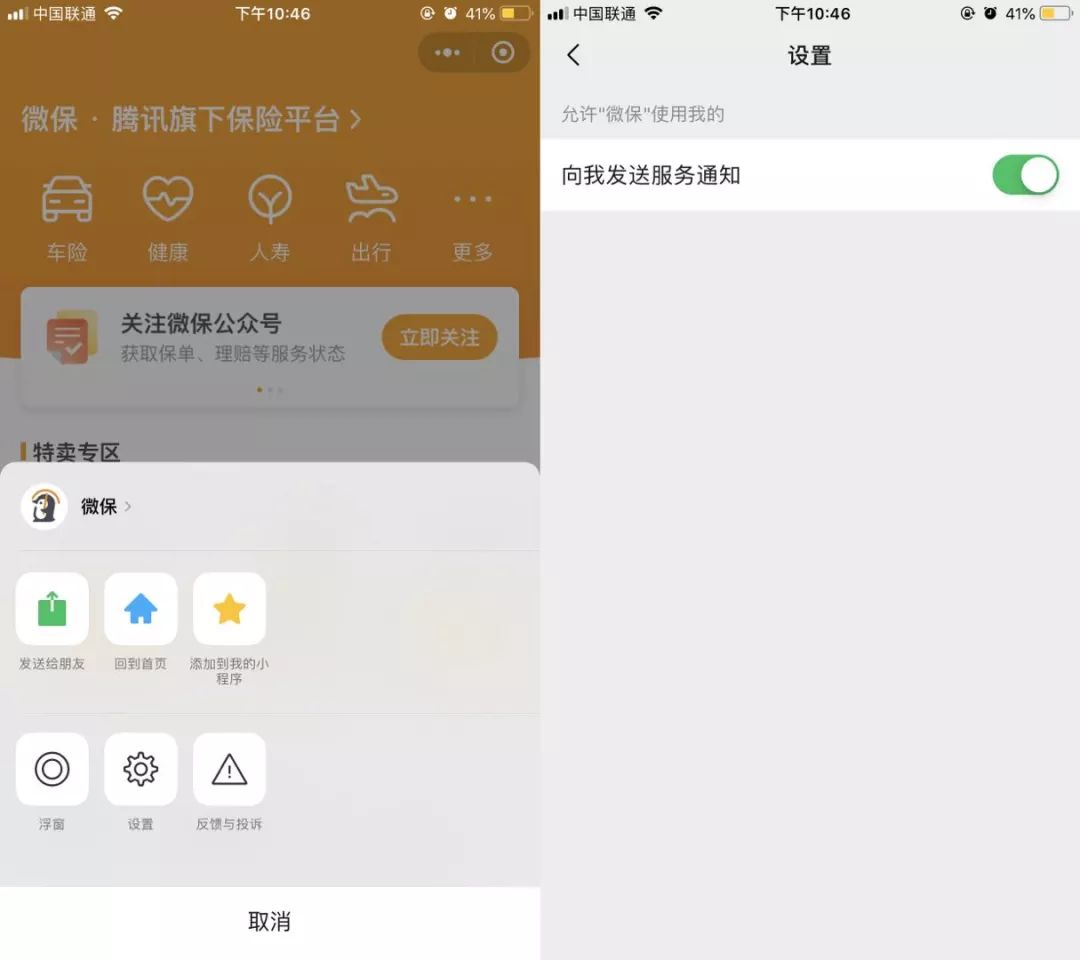Developers must also weigh carefully between recalling users and ensuring the experience.
Editor’s note: This article is from WeChat public account “Know the program” (ID : zxcx0101), author: Jiang Hongchang.
An investor once referred to Zhang Xiaolong’s speech on the WeChat Open Course Pro in the last 3 years as “Small Program 3”: If you want to understand the past, present and even future of WeChat applet, read this 3 A speech is enough.
The update of WeChat and small program capabilities has repeatedly confirmed such assertions. At the beginning of the year, Zhang Xiaolong’s speech mentioned the desire to enhance the ability of small programs to retrieve. Now, this new capability has come.
Recently, many small game developers have received the beta notification of opening a “subscription message”. They only need to perform simple configuration in the background. The small game can push the template message to the user at some key nodes to achieve the recall. User’s purpose.
▲ “Subscribe to Messages” feature. Image courtesy of: Public No. MinProgram
The public number MinProgram (WeChat ID: minprogram) shows the complete configuration process of the subscription message function. After the function is enabled, the developer can view and select the ready-made subscription template in the template library and perform Configuration. At present, the template library does not support custom templates. The existing templates include: ranking drop reminder, current day ranking notification, physical recovery reminder, activity open notification, etc.
▲ There are currently 14 templates for “Subscription Messages”. Image courtesy of: Public Number MinProgram< /span>
In addition, subscription messages also need to meet the following two criteria to push notifications:
1, the user needs to actively click on a button or element in the game.Subscribe;
2, the subscription prompt box style cannot be customized.
After the configuration is complete, if the user subscribes to the corresponding alert, they will receive an alert in the service notification. The user clicks on the message card and can jump to the applet.
Public No. MinProgram No. The main flower uncle tells the program. The “subscription message” of this beta is also a one-time subscription, that is, the user subscribes once and the background can send a message. This is the same as the past “one-time subscription message”, but the official provides more contacts for pushing the message.
Micro-protection is the insurance platform of Tencent, with small programs as the main position. Knowing that the program interviewed Microblogging a few weeks ago, they learned that they are already using the “Subscription Message” feature.
At present, Micro-Purchasing has a non-profit penguin game in the small program. After adopting a cartoon penguin, users can get the “little fish” feeding penguins through sign-in, question-and-answer, etc. Penguin grows up. In the process, “love” will be generated, and users can donate “love” to public welfare projects.
▲ The “Penguin Paradise” of the micro-protection applet can subscribe to the message of receiving food
The check-in is set to 3 times a day, at different times, the user can subscribe to the message and get a check-in notification in the service message.
According to micro-insurance, “subscription messages” recall users are much better than one-time subscriptions. However, they also stressed that they will not push notifications every time they can sign in the “fish”.
There is another noteworthy thing. On September 17, the official version of WeChat 7.0.7 for iOS was launched. A relatively large update is the addition of the “Settings” function in the applet. Users can set it in the settings. View the permissions currently granted by the applet and manage permissions. This update also makes the management of “subscription messages” simpler and clearer.
From the case of micro-guarantee, the “subscription message” feature may not be limited to the “small game” category. Small program recalls may also use this feature.
A lot of people say why the applet can’t send notifications or pushes? But we see that on the mobile phone, every APP will push the message to the end. The end result is that the user has to ignore all the push, so pushing can not solve the problem.
Zhang Xiaolong used to push the “pre-announce” applet. It is expected that many small games will be connected to the “subscription message”. Developers should also carefully weigh the abuse between the recalled user and the guaranteed experience. This feature is likely to allow users to directly choose to reject the message.



